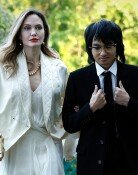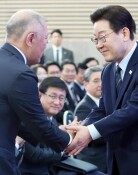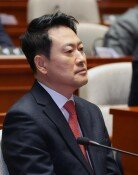[Opinion] Bad Time for University Education Reform
[Opinion] Bad Time for University Education Reform
Posted October. 05, 2001 08:20,
![[Opinion] Bad Time for University Education Reform](https://dimg.donga.com/egc/CDB/ENGLISH/Article/20/01/10/05/2001100583388.jpg)
At a time when the world superpower U.S. faces an oncoming retaliatory war against terrorism and our nation`s economy is in a precarious state, a discussion of problems in higher education may seem like a waste of valuable column space.
Yet, the turbulent events of today and yesterday will draw to a close in the near future or flow into a normal course of national life, whereas higher education will impact the state of our nation in 10 or 20 years. Hence, in spite of the risk, I dared to pick up my pen. Moreover, I feel that now is the time when we must take measures on the issue.
Society and the government have been constantly telling universities to help increase economic power over many years. It`s time, they say, for universities to get out of the ivory tower and provide education and research that meet the needs of the real world. Whether it`s admitting students or determining the work conditions for professors, this must be the primary consideration. Departments with few students should be closed, professor salaries and work hours should be determined according to their research performance, and the school should secure its budget by receiving governmental remuneration for research that benefits the national economy.
Much of the research and experiments in education system, salary system, and industry-university joint cooperation are responses to the social needs. I call these recent changes experiments because no one knows for certain how these new measures will mutate our universities. Those within the universities who are directly responsible for the operation and development of the schools appear to be co-opted by the imminent changes in the market and merely encourage the school to make any change that meets the demands of the market as quickly as possible.
On the other hand, those who have to put these changes into effect – the professors – are split in many directions and do not seem able to get themselves together. Those who have a close relationship to market demands from the outset welcome the new changes and adapt to it well, whereas those who do not are swept in worries about the future. What are called `popular` and `unpopular` departments determine survival and universities are quick to establish new ones or eliminate a whole department solely based on projections about its market value.
Originally, universities were not the kind of organizations and structures that could quickly and sensitively respond to the market`s competition game. It is only natural, therefore, for schools to go through chaos and panic as it changes in a market-driven institution.
In a time like this, those who are concerned about higher learning must come together and unite in order to decide on what should change and what should remain in the university. When we consider modern advanced industrial nations, they founded their economic power by stocking up intellectual ability in their universities over the past 100 or 200 years. In other words, they developed into advanced industrial nations not because of their sensitivity to the flux of market demands, but because of their focus on intellectual curiosity, scientific systematization, and public welfare.
With the world changing at the present pace, who knows how much it will change in the next or the next two generations? The university is foundation and safety net for the nation`s, society`s, and humanity`s stability and learning.
I am not suggesting that the university should stand aloof when the global economy is becoming more and more fast paced and inhumane. Everyone needs to have a survival technique to adapt to the changes in the world. That, however, does not mean that everything, including the university, must change. We must reach an agreement on this issue and take steps to maintain such institutions. Couple years ago, the head of a major corporation said that we must change everything except our spouses, but to follow this in the university will place too great a burden on our uncertain future.
Kwon Tae-Joon (Seoul National University, Professor of Environmental Studies, Department of Policy Studies)







